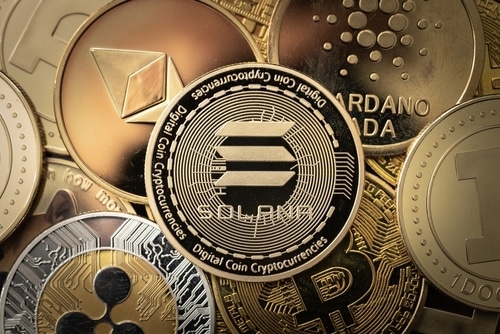Solana and Cardano are two of the top proof-of-stake (PoS) crypto networks. They were both created for scalability in developing smart contracts and building of decentralized applications. As PoS networks, the two projects have several things in common.
They rely on validators who stake assets to protect the network and validate transactions. Their tokens also don’t need to be mined, instead, they already exist and only need to be released into circulation, making them more energy efficient.
Our concern in this guide however is to examine the differences between these two projects and establish what makes each one unique. By the time you’re done reading the guide, it should be clear to you which project to invest in, so let’s begin.
What is Solana (SOL)?
Solana is a PoS network that was created to bring a faster network for smart contracts, decentralized applications (dApps), and other things that web3 has to offer such as non-fungible tokens.
The network is fondly referred to as the Ethereum killer, and for good reason. The first is that it is more scalable than Ethereum. In fact, its very design gives it an edge over Ethereum apart from the PoS consensus, it has an additional consensus mechanism known as proof-of-history (PoH).
It is this additional consensus mechanism that makes Solana infinitely scalable. The network is able to expand and accommodate more traffic as the need arises and shrinks back with less traffic. That way, there is no risk of congestion and so no exorbitant transaction fees due to slow transactions.
Because of this higher efficiency and lower cost of transactions, many developers have opted for Solana instead of Ethereum. The network’s native token, SOL, is used to pay for transaction fees, and also for staking by validators to secure the network.
It is also used as a governance token, which holders can use as a right to vote on proposed developments for the growth of the network. SOL has a total supply of roughly 580 million tokens and a circulating supply of just over 460 million.
What is Cardano (ADA)?
Cardano is a top PoS network, ranking as the 10th largest crypto asset by market cap. Like any other PoS network, it is used for building decentralized applications to support non-fungible tokens and other things.
The network is very strict in terms of implementing new upgrades, which is why all of its proposals are scrutinized academically to make sure they are fool proof. Cardano is quite a unique network because of this, and is also unique because the founder, Charles Hoskinson has built wallets and other applications that are unique to it.
The native token ADA is used to pay for fees, which usually costs a fraction of a cent because of the scalability of the network which makes transactions faster and so less costly. The token is also used in staking to secure the network and to incentivize validators for doing so.
The token is also used for participating in governance. Anyone who holds some ADA can vote on new proposals for the implementation of changes to the network to ensure it is safe as well as improved.
There are 45 billion ADA tokens pre-mined and are already in existence but are released slowly into circulation. However, there are only about 36 billion that are in circulation currently. It is one of the best staking assets in the industry and also serves as an investment asset for many investors.
Which Should You Buy?
So, which of these two assets should you buy? If you’re buying strictly for making profits, there are factors to consider, one of which is the number of tokens in circulation. Clearly, ADA has a much larger supply than SOL, which may explain why SOL is worth much more than ADA.
However if you wish to participate in any of the networks, you’ll have no choice but to buy the token for the network you wish to use.
At Tokenhell, we help over 5,000 crypto companies amplify their content reach—and you can join them! For inquiries, reach out to us at info@tokenhell.com. Please remember, cryptocurrencies are highly volatile assets. Always conduct thorough research before making any investment decisions. Some content on this website, including posts under Crypto Cable, Sponsored Articles, and Press Releases, is provided by guest contributors or paid sponsors. The views expressed in these posts do not necessarily represent the opinions of Tokenhell. We are not responsible for the accuracy, quality, or reliability of any third-party content, advertisements, products, or banners featured on this site. For more details, please review our full terms and conditions / disclaimer.
